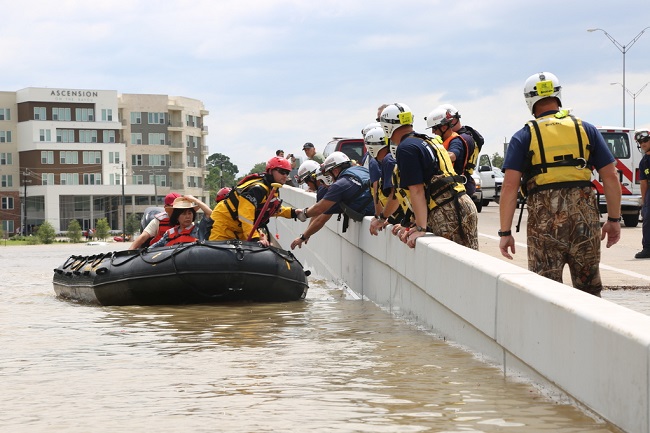Helping After Disasters

At Arabella, we’ve helped hundreds of philanthropists give wisely in the wake of disasters over the past decade, both as an advisor to our clients and as a co-founder of the Center for Disaster Philanthropy (to which Facebook recently directed donors during Hurricane Harvey).
We’ve learned some important lessons through those efforts. Here are three tips all donors should keep in mind as you think about how to do the most good with your disaster giving:
- Think beyond immediate needs: Contributions to immediate relief are critical, but full recovery doesn’t happen overnight. Affected communities will need help rebuilding long after Anderson Cooper and the rest of the media have moved on to a new news cycle, so it’s important to take the long view. A recent report from the Foundation Center and the Center for Disaster Philanthropy shows the lack of support for strategic long-term recovery and rebuilding—and hence the opportunity for donors to step in and make a long-term difference in affected communities.
- Support causes you already know and care about: When it comes to disaster philanthropy, donors tend to do the most good by giving in the areas they already know the most about. For example, a donor who’s already focused on education might look to help displaced children continue to access school programs. The Center for Disaster Philanthropy, National Voluntary Organizations Active in Disaster, and InterAction all provide lists of potential grantees that can help donors align their disaster philanthropy with their existing missions.
- Plan ahead for such emergencies: Experts predict that disasters like the ones we saw in recent weeks may become more frequent and more severe. Donors should consider how much they’ve given annually in response to disasters and plan for at least that much next year (and the year after). You can also take some of the guesswork out of picking disaster charities by getting to know a few national organizations well, so you already have a go-to when the next storm hits.
Arabella’s phones light up whenever a disaster occurs. The impulse to give back is strong and always provides a bright spot in post-disaster days. When we advise clients on disaster response, they are often both excited about the potential to help and relieved to discover ways to confidently use their dollars to best support those in need. We hope these tips will help all donors navigate these important giving decisions.
